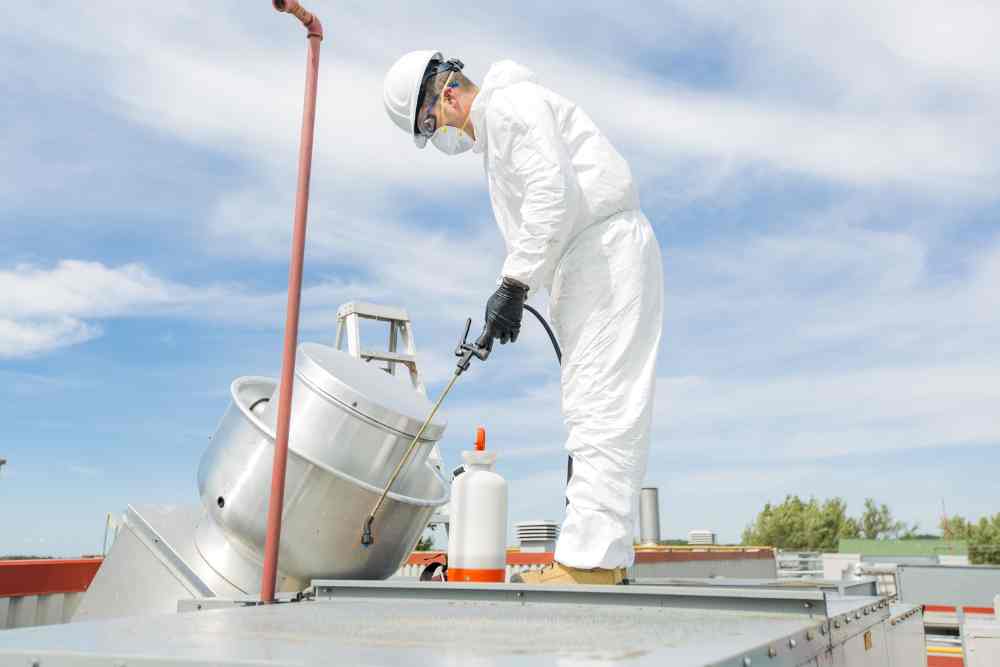Table of Contents
- Grease Fire Mitigation Through Hood Cleaning Techniques
- The Importance of Hood Cleaning
- Techniques for Hood Cleaning
- 1. Inspection
- 2. Preparing the Work Area
- 3. Removing Grease Buildup
- 4. Cleaning Filters
- 5. Cleaning Ductwork
- 6. Final Inspection
- The Benefits of Hood Cleaning
- 1. Fire Prevention
- 2. Compliance with Regulations
- 3. Improved Air Quality
- 4. Extended Equipment Lifespan
- 5. Enhanced Efficiency
- Frequently Asked Questions
- 1. How often should hood cleaning be performed?
- 2. Can I clean the hood myself?
- 3. What are the signs that my hood needs cleaning?
- 4. Are there any specific regulations regarding hood cleaning?
- 5. How can I find a reliable hood cleaning service?
- Summary
Grease Fire Mitigation Through Hood Cleaning Techniques

Grease fires are a serious hazard in commercial kitchens, causing significant damage and posing a threat to the safety of employees and customers. One effective way to mitigate the risk of grease fires is through regular hood cleaning techniques. In this article, we will explore the importance of hood cleaning, the techniques involved, and the benefits it brings to commercial kitchens.
The Importance of Hood Cleaning
Commercial kitchens generate a significant amount of grease and oil during cooking processes. Over time, this grease accumulates in the exhaust hood and ductwork, creating a highly flammable environment. If not properly cleaned, this buildup can ignite and result in a dangerous grease fire.
Hood cleaning plays a crucial role in preventing grease fires by removing the accumulated grease and ensuring the exhaust system is free from flammable materials. Regular cleaning not only reduces the risk of fire but also improves the overall air quality in the kitchen, preventing the spread of odors and contaminants.
Techniques for Hood Cleaning
There are several techniques involved in effective hood cleaning. These techniques ensure that all areas of the exhaust system are thoroughly cleaned, minimizing the risk of grease fires. Let’s explore some of the key techniques:
1. Inspection
Prior to cleaning, a thorough inspection of the hood and exhaust system is conducted. This helps identify any areas that require special attention or repairs. It is essential to address any issues before proceeding with the cleaning process.
2. Preparing the Work Area
Before starting the cleaning process, it is important to prepare the work area. This involves covering appliances, countertops, and other surfaces to protect them from cleaning chemicals and debris. It is also crucial to ensure proper ventilation during the cleaning process.
3. Removing Grease Buildup
The next step involves removing the accumulated grease from the hood, filters, ductwork, and exhaust fans. This is typically done using specialized cleaning agents and tools. It is important to follow the manufacturer’s instructions and safety guidelines when using these chemicals.
4. Cleaning Filters
The filters in the hood play a vital role in trapping grease particles. Over time, these filters become clogged and less effective. Cleaning and maintaining the filters regularly is essential to ensure proper airflow and prevent grease buildup.
5. Cleaning Ductwork
The ductwork is a critical component of the exhaust system. It is responsible for carrying the grease-laden air out of the kitchen. Cleaning the ductwork involves removing any grease buildup and ensuring that the entire system is free from obstructions.
6. Final Inspection
Once the cleaning process is complete, a final inspection is conducted to ensure that all areas of the hood and exhaust system are thoroughly cleaned. This helps identify any missed spots or areas that require further attention.
The Benefits of Hood Cleaning
Regular hood cleaning brings numerous benefits to commercial kitchens. Let’s explore some of the key advantages:
1. Fire Prevention
The primary benefit of hood cleaning is the prevention of grease fires. By removing the accumulated grease, the risk of ignition is significantly reduced, ensuring a safer working environment for kitchen staff and minimizing the potential for property damage.
2. Compliance with Regulations
Many jurisdictions have specific regulations and codes that require regular hood cleaning in commercial kitchens. By adhering to these regulations, businesses can avoid penalties and maintain a good reputation with health and safety authorities.
3. Improved Air Quality
Grease buildup in the exhaust system can lead to poor air quality in the kitchen. Regular hood cleaning helps remove odors, smoke, and contaminants, creating a healthier and more comfortable environment for employees and customers.
4. Extended Equipment Lifespan
Grease buildup can negatively impact the performance and lifespan of kitchen equipment, such as exhaust fans and ductwork. Regular cleaning helps maintain the efficiency of these systems, reducing the need for costly repairs or replacements.
5. Enhanced Efficiency
A clean hood and exhaust system allow for better airflow, improving the overall efficiency of the kitchen. Proper ventilation helps maintain consistent temperatures, reduces cooking odors, and prevents the accumulation of heat and humidity.
For professional kitchen exhaust hood cleaning services in Ontario, visit Ontario Hood Cleaning.
Frequently Asked Questions

1. How often should hood cleaning be performed?
Hood cleaning should be performed at least once every three months. However, the frequency may vary depending on the volume of cooking and the type of food being prepared. It is best to consult with a professional hood cleaning service to determine the appropriate cleaning schedule for your kitchen.
2. Can I clean the hood myself?
While it is possible to clean the hood yourself, it is recommended to hire a professional hood cleaning service. Professionals have the necessary expertise, equipment, and cleaning agents to ensure a thorough and safe cleaning process. They can also identify any potential issues that may require repairs.
3. What are the signs that my hood needs cleaning?
Some signs that indicate the need for hood cleaning include visible grease buildup on the hood and filters, reduced airflow, persistent cooking odors, and excessive smoke during cooking. If you notice any of these signs, it is important to schedule a cleaning as soon as possible.
4. Are there any specific regulations regarding hood cleaning?
Yes, many jurisdictions have specific regulations and codes that require regular hood cleaning in commercial kitchens. These regulations aim to ensure the safety of employees and customers. It is important to familiarize yourself with the local regulations and comply with them to avoid penalties.
5. How can I find a reliable hood cleaning service?
To find a reliable hood cleaning service, consider asking for recommendations from other restaurant owners or managers. Look for companies that are certified and have a good reputation in the industry. It is also important to inquire about their cleaning process, insurance coverage, and any guarantees they offer.
Summary
Hood cleaning is a crucial aspect of grease fire mitigation in commercial kitchens. By regularly cleaning the hood and exhaust system, businesses can significantly reduce the risk of grease fires, comply with regulations, improve air quality, extend equipment lifespan, and enhance overall efficiency. Hiring a professional hood cleaning service ensures a thorough and safe cleaning process. By following the recommended cleaning schedule and adhering to local regulations, businesses can create a safer and healthier environment for their employees and customers.
- Grease Fire Mitigation Through Hood Cleaning Techniques
- hood cleaning
- kitchen exhaust cleaning
- restaurant hood cleaning






